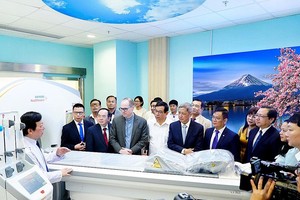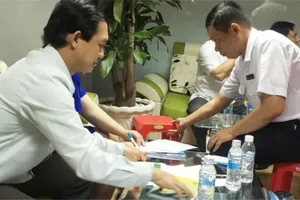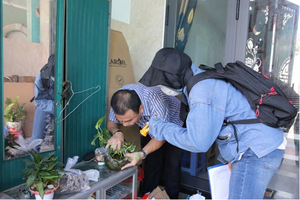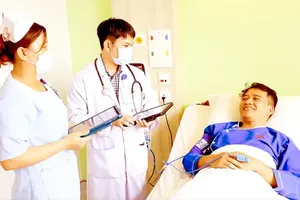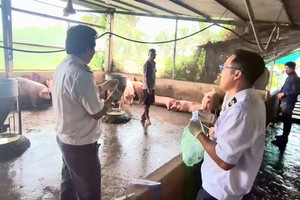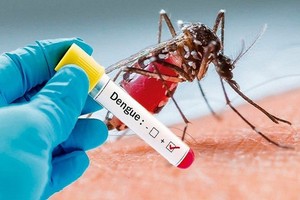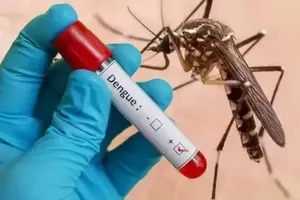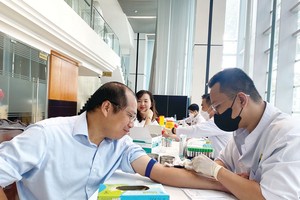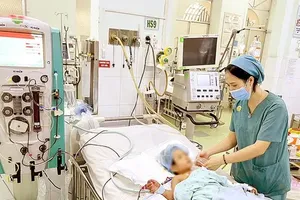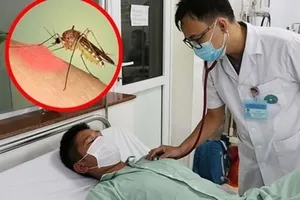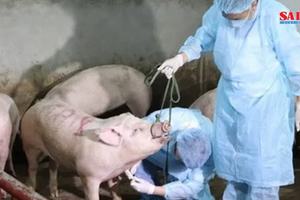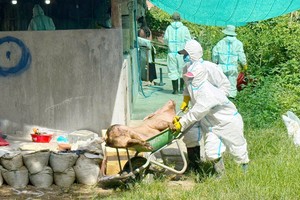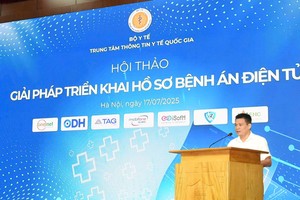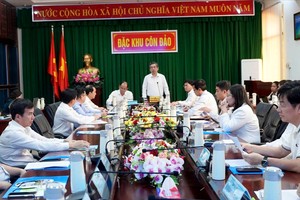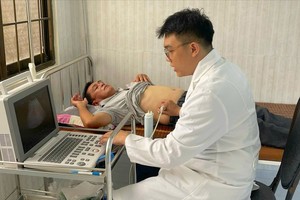The entrepreneurial path of Dr. Nguyen Huu Tung, who founded Hoan My Medical Group and Tam Tri Medical Group and now leads Phan Chau Trinh University in the Central Province of Quang Nam as Chairman, has been marked by resilience. He once confessed to a romantic management style, which, despite leading to business failures, never stopped the Quang Nam doctor from pursuing his vision.
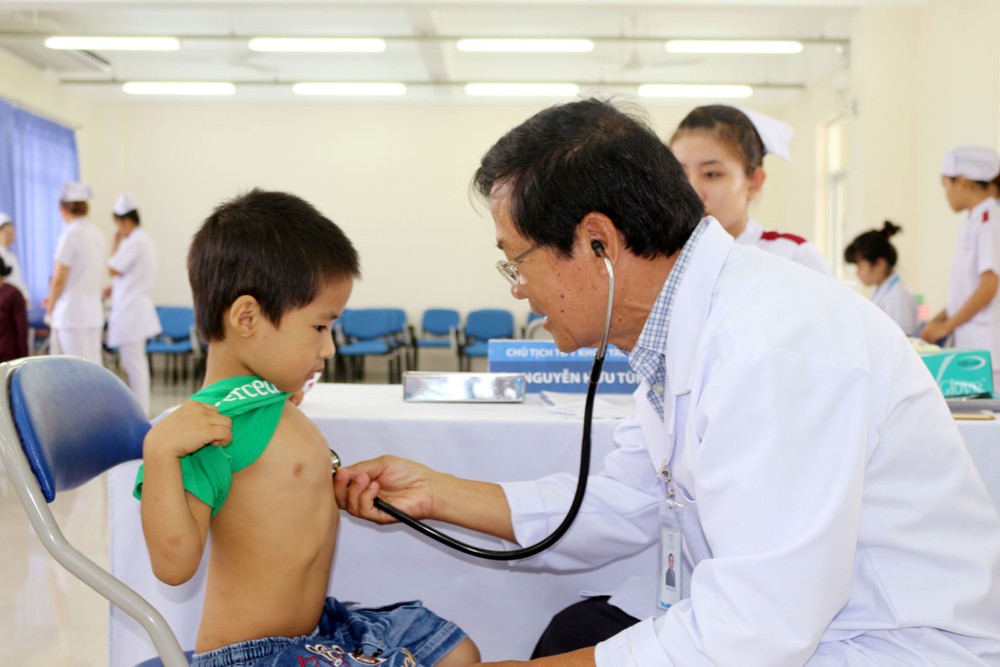
At age 31, Dr. Nguyen Huu Tung became Director of Dai Loc District Hospital in Quang Nam Province in 1984. At that time, Vietnam’s healthcare system grappled with significant challenges and underdevelopment. In remote regions, inadequate patient care conditions and a shortage of medical staff deeply troubled him. He believed that improving healthcare quality required training doctors in both expertise and ethics from their student years. This vision sparked his dream of establishing a private medical school.
Embracing the era of reform, Dr. Tung left the public health sector to set up a private infirmary. In 1997, he and his colleagues founded a small clinic in Ho Chi Minh City's Tan Binh District. By 1999, this clinic had grown into Hoan My Hospital, marking the inception of Vietnam’s first private hospital.
Over the next decade, Hoan My Hospital grew into Vietnam’s largest medical group, embodying a modern, patient-focused healthcare model. Despite strong professional management, its lack of financial expertise led to vulnerabilities. Ultimately, Dr. Nguyen Huu Tung had to sell the group to international investors, parting with the institution he founded. According to him, good management alone isn’t enough but good governance is essential. Though this setback was challenging, his vision of establishing a medical school endured. Plans for a school in HCMC's Cu Chi outlying district fell through due to procedural issues.
In his sixties, Dr. Tung sold his land in District 9 and returned to Quang Nam Province, where he acquired Phan Chau Trinh University. In 2017, the university gained approval to offer undergraduate medical training. Dr. Tung aimed to create a hub for training doctors with both expertise and strong medical ethics, elevating the profession’s reputation. He developed an institute-school model, integrating training with practical experience at hospitals under Tam Tri Medical Group.
By 2025, Phan Chau Trinh University Hospital will further this vision. This model ensures consistency, with the same physicians teaching theory and guiding clinical practice, enabling students to seamlessly apply their knowledge. Though a young medical school, its first graduates have been recruited by major hospitals in Ho Chi Minh City, the Central City of Da Nang, and Quang Nam Province. This achievement confirms the effectiveness and quality of the training Dr. Nguyen Huu Tung has diligently pursued throughout his 30-year medical career.
In Ho Chi Minh City, the headquarters of Tam Tri Medical Group is tucked away in a quiet alley, marked by a modest sign. Despite leading two of Vietnam’s major medical groups, Dr. Nguyen Huu Tung has kept his office unchanged for years—mirroring the constancy of his principles and philosophy. To him, choosing to be a doctor means unwavering dedication to the profession. He sees no need to distinguish between public and private hospitals, as doctors care for patients wherever they are. From a broader perspective, he believes that when public and private healthcare systems develop in tandem and complement each other, they ultimately serve the same goal - public health.
Yet, Dr. Tung is concerned about the imbalance in Vietnam’s healthcare investment strategy. In developed countries, he notes, preventive medicine is the cornerstone of healthcare—supported by aligned policies, funding, and human resources, all aimed at proactively protecting community health. In contrast, Vietnam’s preventive care sector remains underfunded and undervalued. Preventive medicine doctors earn meager incomes, and their facilities are often outdated and inconsistent. Meanwhile, new hospitals continue to rise, and bed counts increase, yet overcrowding persists due to the high rate of illness.
He concerns that this long-standing situation is shaping a damaging mindset in society that working hard to earn money in youth, only to spend it treating disease in old age. Medical care expenditures, particularly for chronic disorders, are becoming increasingly expensive as the population ages.
Doctor Nguyen Huu Tung believes that doctors have a social responsibility to improve health awareness and successfully prevent sickness. Students from Phan Chau Trinh University take part in a community learning program. That is, in addition to practicing in the hospital, students also go to mountainous districts, live and work with local people, learn about culture and customs, and apply.
On a broader scale, Dr. Nguyen Huu Tung envisions imminent strategic changes at the national level, advocating for policies that promote sustainable, green, and clean development in healthcare, agriculture, and the environment. Only through these initiatives can the overall health of the community be enhanced in the decades to come.
According to Dr. Nguyen Huu Tung, medical education should not merely produce individuals with degrees, but rather cultivate responsible individuals: accountable for their profession, their patients, their community, and the future. Now in his seventies, this dedicated physician has no plans to retire.
Over the past 30 years, from Hoan My Medical Group to Tam Tri Medical Group and Phan Chau Trinh University, Dr. Nguyen Huu Tung has been relentlessly working to establish a standardized medical training ecosystem, bridging the gap between Vietnamese medicine and global standards.
